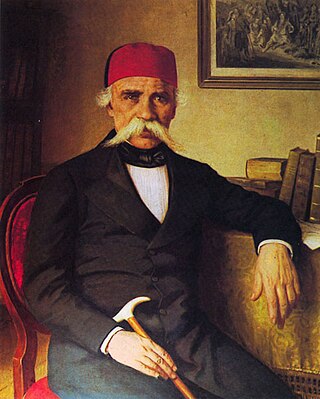
Vuk Stefanović Karadžić was a Serbian philologist, anthropologist and linguist. He was one of the most important reformers of the modern Serbian language. For his collection and preservation of Serbian folktales, Encyclopædia Britannica labelled Karadžić "the father of Serbian folk-literature scholarship." He was also the author of the first Serbian dictionary in the new reformed language. In addition, he translated the New Testament into the reformed form of the Serbian spelling and language.
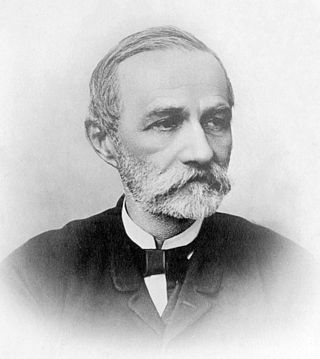
Jovan Jovanović Zmaj was a Serbian poet, translator and physician.
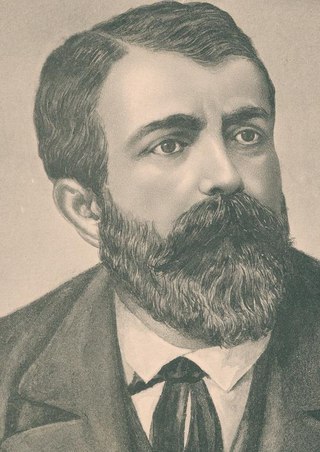
Georgije "Đura" Jakšić was a Serbian poet, painter, writer, dramatist and bohemian.

Sremska Kamenica is a town and urban neighborhood of Novi Sad, in Serbia.

Vojislav Ilić was a Serbian poet, known for his finely chiseled verse. His poetry exemplifies a classic example of modern Serbian language and features the standard Decadent motifs of the epoch: cruel nature, and the times of Elagabalus.

Aleksije "Branko" Radičević was a Serbian poet who wrote in the period of Romanticism.
Serbian literature, refers to literature written in Serbian and/or in Serbia and all other lands where Serbs reside.
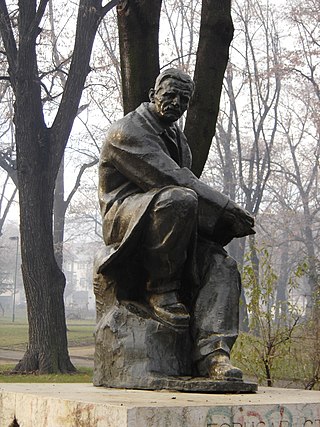
Borisav "Bora" Stanković was a Serbian writer belonging to the school of realism. His novels and short stories depict the life of people from South Serbia. He belongs to an exceptional group of storytellers that appeared at the turn of the 20th century, Ivo Ćipiko, Petar Kočić, Milutin Uskoković, Svetolik Ranković, Veljko Milićević and others.
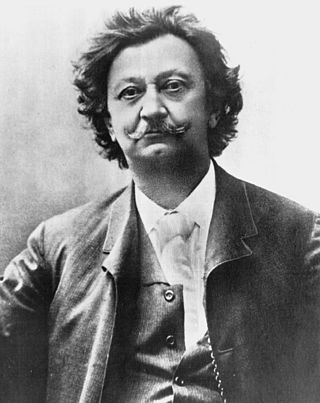
Lazar Kostić was a Serbian poet, prose writer, lawyer, aesthetician, journalist, publicist, and politician who is considered to be one of the greatest minds of Serbian literature. Kostić wrote around 150 lyrics, 20 epic poems, three dramas, one monograph, several essays, short stories, and a number of articles. Kostić promoted the study of English literature and together with Jovan Andrejević-Joles was one of the first to begin the systematic translation of the works of William Shakespeare into the Serbian language. Kostić also wrote an introduction of Shakespeare's works to Serbian culture.
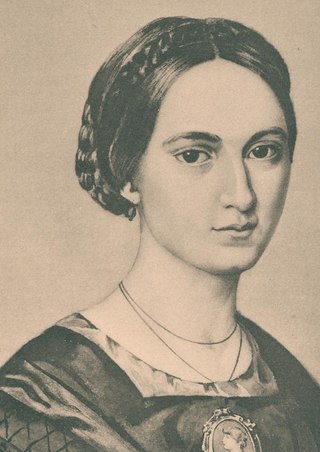
Milica Stojadinovic-Srpkinja (1828–1878) was a Serbian poet, sometimes called "the greatest female Serbian poet of the 19th century".

Zaharije Orfelin was a Serbian polymath who lived and worked in the Habsburg monarchy and Venice. Considered a Renaissance man, he is variously described as a theologist, scientist, poet, engraver, painter, lexicographer, herbalist, oenologist, historian, publisher and translator.

Vasilije "Vasa" Živković (1819–1891) was a Serbian poet and Orthodox priest. He is highly regarded in Serbian culture for his role in collecting verses from oral traditions of his people. His literary opus sustained only half of his poems to be printed since he was prone to self-criticism. His contemporaries were poets Jovan Ilić, father of Vojislav Ilić, Stevan Vladislav Kačanski, and many others.

Đorđe Marković Koder (Serbian: Ђорђе Марковић Кодер; was a Serbian poet born in Austrian Empire. Misunderstood, largely forgotten and often considered a marginal figure in Serbian poetry, criticized for his cryptic style littered with incomprehensible words and obscure metaphors, Koder was nevertheless a unique phenomenon in the 19th century Serbian literature, sometimes cited as the first Serbian modernist.

Ljubomir Nenadović was Serbian writer, poet, translator, diplomat, minister of education and member of the Serbian Royal Academy.

Jovan Subotić was a Serbian lawyer, writer, politician and academic.
Milorad J. Mitrović was a Serbian lyrical poet.
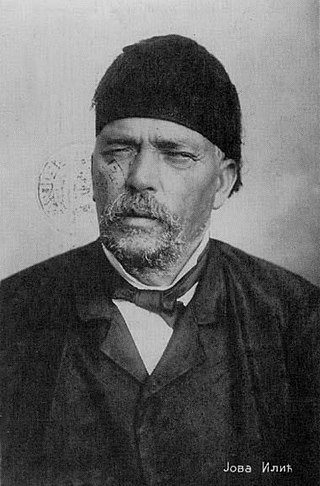
Jovan "Jova" Ilić was a Serbian poet and politician.
Manojlo Grčić is a legendary hero in Serbian epic poetry. He was of Greek origin, which is also emphasized by the etymology of his surname which is diminutive of "Greek" in Serbian. A poem about Manojlo Grčić was also found in the Erlangen Manuscript.

Đorđe Maletić was a Serbian poet, translator, aesthetic, and theoretician.

















